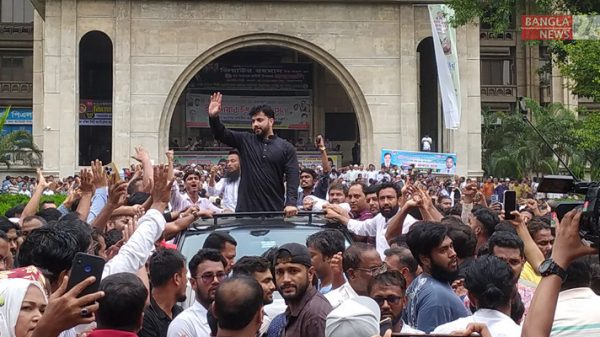Govt must sort out Dhaka’s supply water shortage early

SUPPLY water shortage, a summer-time phenomenon in Dhaka, has started taking place in different parts of the capital city. Residents have also complained dirty and stinking water supply in areas such as Mirpur, Dhanmondi, Mugda, Hazaribagh, Manda, Demra, Jatrabari and Postagola. People in several areas say, as New Age reported on Friday, that they have faced supply shortage for four to eight days. The situation has made it difficult for the residents to do their daily chores and has forced them to spend extra on buying water. People who can afford rely on water lorries and others have to walk miles to collect just a bucket of water. A lorry of water lasts for a day for a multi-storey building with multiple households but costs more than Tk 1,000, which is an added burden. In some places, people stand in long queues for water. Residents have repeatedly sought solutions to the problem from the Dhaka Water Supply and Sewerage Authority, but the problem persists.
Supply water officials acknowledged that they have not been able to maintain an adequate supply in parts of the city but blamed population density and a sudden increase in water consumption. With an increasing number of multi-storey buildings and blocks of flats, the number of water pipelines has increased but the sources remained the same. Such an explanation is unacceptable and what is worrying is that the authorities appear not to have any definite plans to overcome the situation even when the problem has persisted for years. An inadequate supply of water is not the only problem; the quality of the water has also remained a major concern. In 2019, a Transparency International Bangladesh report said that 91 per cent of the consumers boil water before drinking and gas worth Tk 332 crore is burnt a year for the job. In addition, a large number of consumers suffered from various waterborne diseases because of the poor quality of the supply water. The services have also not improved, yet the tariff has increased — Dhaka’s agency increased the water tariff for domestic use by 151.32 per cent from Tk 6.04 a unit in 2009 to Tk 15.18 till 2021. Another round of tariff increase has been in discussion.
Dhaka’s supply water agency must, therefore, immediately address the water scarcity in affected areas, by arranging, if needed, water lorries for subsidised prices. The government must also urgently review the situation and allocate required resources to secure additional water sources. The agency must also take steps to improve the water quality that has been a concern for long for people in Dhaka. Meanwhile, the authorities must maintain a conservative policy in approving real estate projects in Dhaka as unplanned and uncoordinated urbanisation is one of the main reasons for the water scarcity.

























Leave a Reply